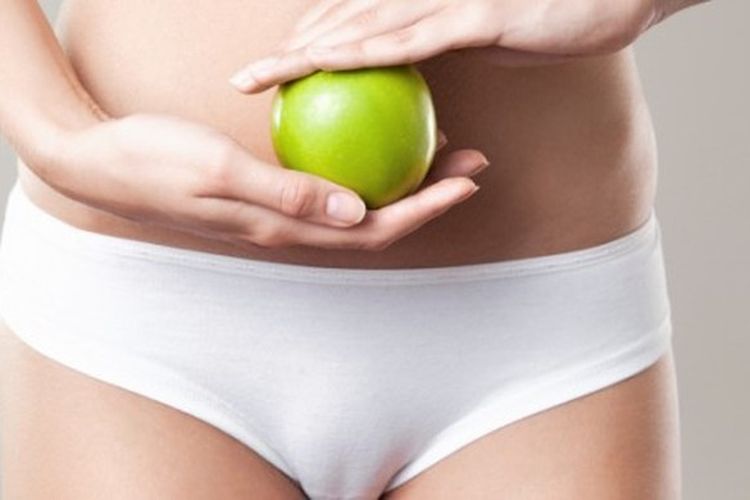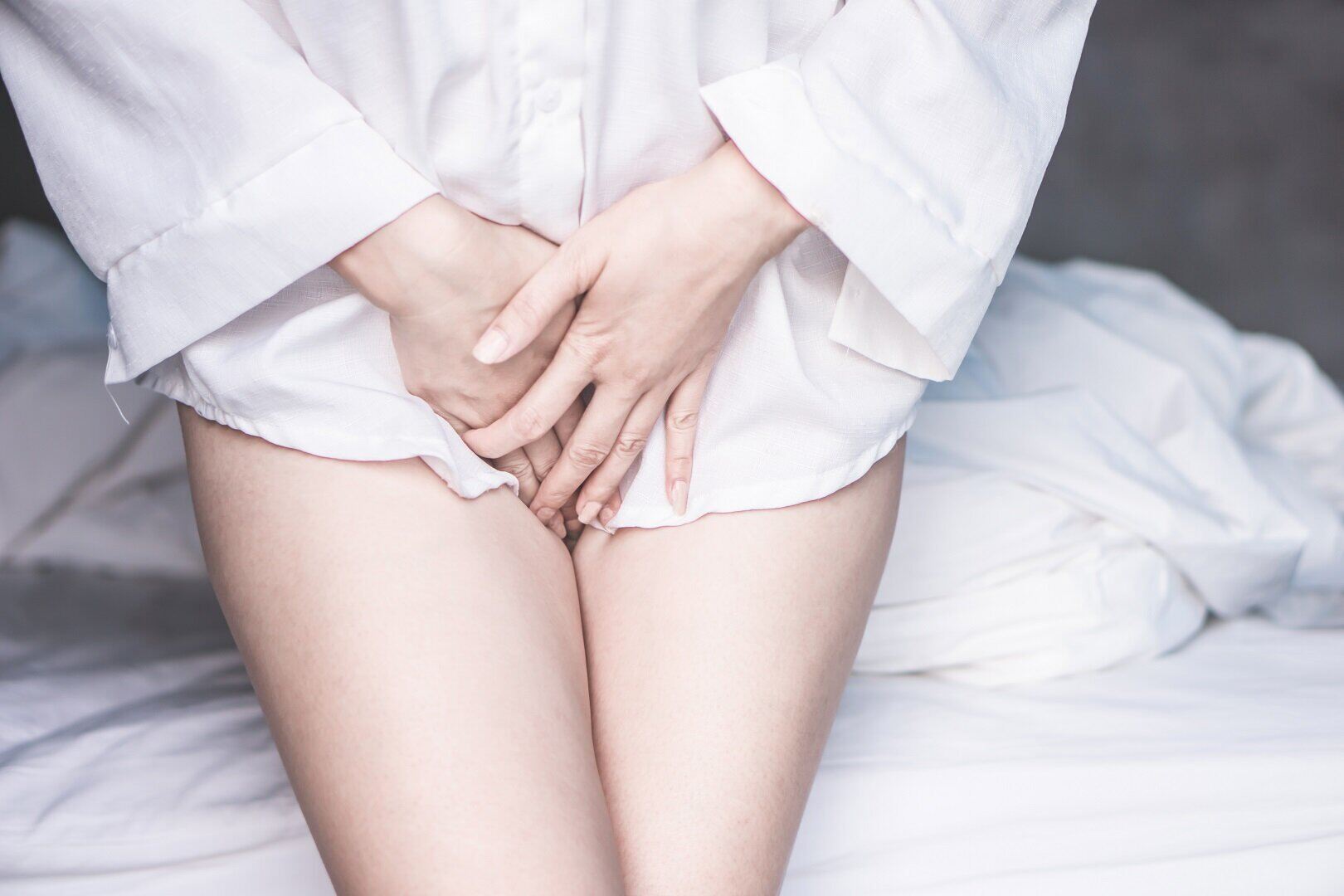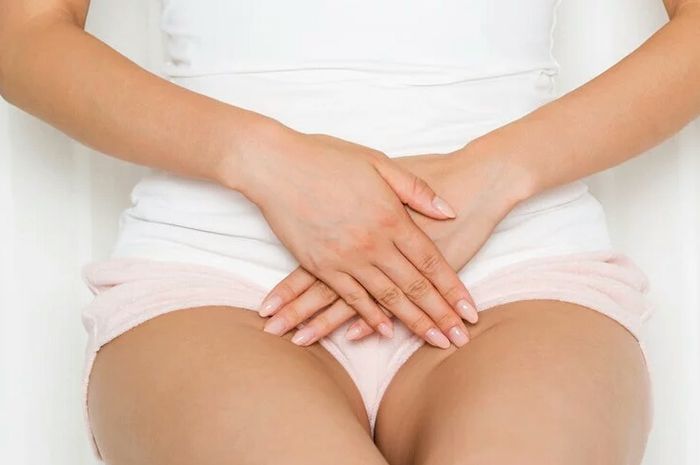Vaginal discharge after menopause is a question for most women. Is this condition normal or a sign of a health problem?
As we know, vaginal discharge is a problem often experienced by women. Vaginal discharge is ordinary and necessary because it can keep your vulva and vagina moist and keep infection away.
In general, healthy vaginal discharge is white, cream, or clear. Vaginal discharge should also have a texture that is not too sticky, and it can even be a little runny.

In addition, this condition does not have a strong odor and does not cause irritation or itching. The amount of vaginal discharge also varies depending on the cycle.
So, what if vaginal discharge appears after a woman goes through menopause?
Is vaginal discharge after menopause dangerous?
Menopause is the period in a woman’s life when she undergoes physical changes that mark the end of her fertility. On average, women experience menopause in the age range of 51 years.
The most common symptoms of menopause are menstrual cycles slowing to a stop and night sweats.
Not only that, vaginal discharge after menopause also often occurs and is experienced by women.
Launching from Healthdirect is caused by the vagina, which tends to lose moisture after menopause due to low levels of the hormone estrogen.
You can still experience vaginal discharge after menopause in small amounts.

Although including normal, you still need to pay attention to the characteristics of vaginal discharge that occurs after menopause.
If you have vaginal discharge that is dark yellow to green in color, you may have an infection.
Infections after menopause are common because the vagina does not produce as much antibacterial mucus.
As we age, the vagina is more prone to inflammation and irritation. It can cause vaginal discharge after menopause to be unhealthy.
Not infrequently, vaginal discharge during this period causes uncomfortable symptoms, such as burning, itching, discomfort during sex, or urinary tract infections.
That’s why you need to pay attention and be aware if there are symptoms of abnormal vaginal discharge after menopause.
What causes vaginal discharge after menopause?

Some women who experience problems in the intimate area after menopause may share some of the following.
- Vaginal atrophy.
- Urethral atrophy.
- Decreased libido.
- Irritation after sexual intercourse.
- In addition, low levels of the hormone estrogen can also cause vaginal dryness.
Decreased estrogen levels can cause blood flow in the vagina to be less than optimal, causing vaginal lubricant to fall and become dry.
Although vaginal dryness is common after menopause, some women may experience increased vaginal discharge.
Vaginal discharge is the most common symptom after vaginal dryness. At the same time, excess estrogen during menopause also causes the vaginal discharge.
Overcoming vaginal discharge after menopause
Seeing that there are quite a lot of problems related to this vaginal discharge, there are several ways or steps you can take to overcome them.
Here are some efforts that it can make to overcome vaginal discharge after menopause.
1. Apply cream to maintain vaginal moisture
You can use a water-based cream that contains the hormone estrogen. This cream helps maintain vaginal moisture.
However, keep in mind to seek advice from your doctor first. In addition, report any complaints regarding vaginal discharge.
2. Eat nutritious food

Vaginal discharge after menopause by a lack of estrogen in the body.
Therefore, you must eat nutritious foods, such as carrots, apples, tofu, and berries.
3. Maintain vaginal hygiene

Although vaginal discharge after menopause is pretty standard, it doesn’t mean you can ignore vaginal hygiene.
Make sure your vaginal area is always clean. Also, wear loose-fitting underwear to stay comfortable.
4. Do pelvic exercises
Pelvic floor exercises will increase blood circulation in the area so you can encourage the vagina to become moister.
5. Wearing pantyliner when vaginal discharge
If you feel an odor accompanies vaginal discharge, try using pantyliners as a solution.
It is because pantyliners can help absorb odors, leaving your intimate area feeling clean and fresh throughout the day.
Things to avoid during vaginal discharge during menopause

For optimal vaginal health, your doctor may suggest something to avoid, including the following.
1. Avoid using ingredients that trigger irritation.
When experiencing vaginal discharge during menopause, avoid using scented soaps and shower gels to trigger irritation.
2. Be careful when using vaginal hygiene products.
The use of wipes, powder, and spray needs to watch out. The reason is that these items can often interfere with the natural bacterial environment in the vagina.
3. Do not use vaginal cleaning fluid.
Vaginal cleansing fluids can increase the risk of bacterial vaginosis.
4. Limit the use of treatments for vaginal dryness
Although sometimes estrogen products are recommended, it is better to consult with your doctor first.



